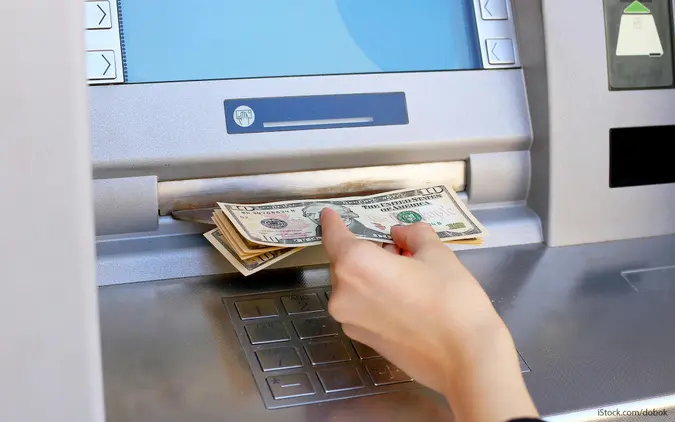

GOBankingRates' editorial team is committed to bringing you unbiased reviews and information. We use data-driven methodologies to evaluate financial products and services - our reviews and ratings are not influenced by advertisers. You can read more about our editorial guidelines and our products and services review methodology.
20 Years
Helping You Live Richer
Reviewed
by Experts
Trusted by
Millions of Readers
Setting up automatic payments can certainly make bill payments easier. But once they’re set up, some recurring payments can be a hassle to stop, depending on the merchant or financial institution that has been given the payment authorization.
Automatic payments that are set up through a bank or credit union may be much easier to cancel than authorization given to a merchant, such as a gym or subscription service. However, any automatic payment can be stopped.
Here is how to stop automatic payments coming out of a bank account.
Remember that stopping an automatic payment will not cancel a service or loan. Before stopping any recurring payment, be sure to either cancel the service or verify how to make manual monthly payments to avoid late fees and prevent possible credit score damage. Here are five ways you can put an end to automatic payments:
Most financial institutions and some merchants allow customers to cancel automatic payments through their online accounts in the same manner through which the automatic payments were initially set up.
If an automatic payment cannot be canceled online, contact the company that has been authorized to automatically withdraw payments and give notice that permission is being revoked. Some merchants may have a Revoke Authorization form.
Other merchants can be contacted by phone or mail and, in some cases, may require both. Send the letter by certified mail, and keep a copy. If possible, obtain and record a cancellation number from the merchant.
Give the bank documentation of the revoked authorization. If the merchant continues to charge the account despite the revoked authorization, further transactions can be disputed with the bank.
A stop payment order instructs the bank to no longer allow a merchant to automatically take payments from an account even if a revoked authorization notice has not been given.
The bank’s policy for stop payment orders is typically outlined in its deposit account agreement. Fees may apply to stop payment orders.
If neither the merchant nor the financial institution has stopped the automatic payments after receiving notice of the revoked authorization, file a complaint with the Consumer Financial Protection Bureau.
A complaint can be filed through the CFPB website. The CFPB will discuss the dispute with the bank and report any findings.
Get the latest news on investing, money, and more with our free newsletter.
By subscribing, you agree to our Terms of Use and Privacy Policy. Unsubscribe at any time.

You're now subscribed to our newsletter. Check your inbox for more details.

One final way to stop an automatic payment is to close the account from which the automatic payments are being withdrawn. Do not merely withdraw all funds from the account, as this can trigger an overdraft and fees if the automatic payment goes through.
While this solution might not be convenient, it will end the automatic payments.
Knowing how to stop automatic payments is essential in today’s digital world, where so many merchants allow for autopay and some even provide discounts with automatic payments. Regardless of which method is used to stop an automatic payment, monitor the account from which the payments are being withdrawn to ensure the payments have ceased.
If the steps have been correctly followed to revoke a payment authorization, further payments to the merchant can be disputed with the bank. Do not set up any new automatic payments without finding out how to cancel them if necessary.
Our in-house research team and on-site financial experts work together to create content that’s accurate, impartial, and up to date. We fact-check every single statistic, quote and fact using trusted primary resources to make sure the information we provide is correct. You can learn more about GOBankingRates’ processes and standards in our editorial policy.